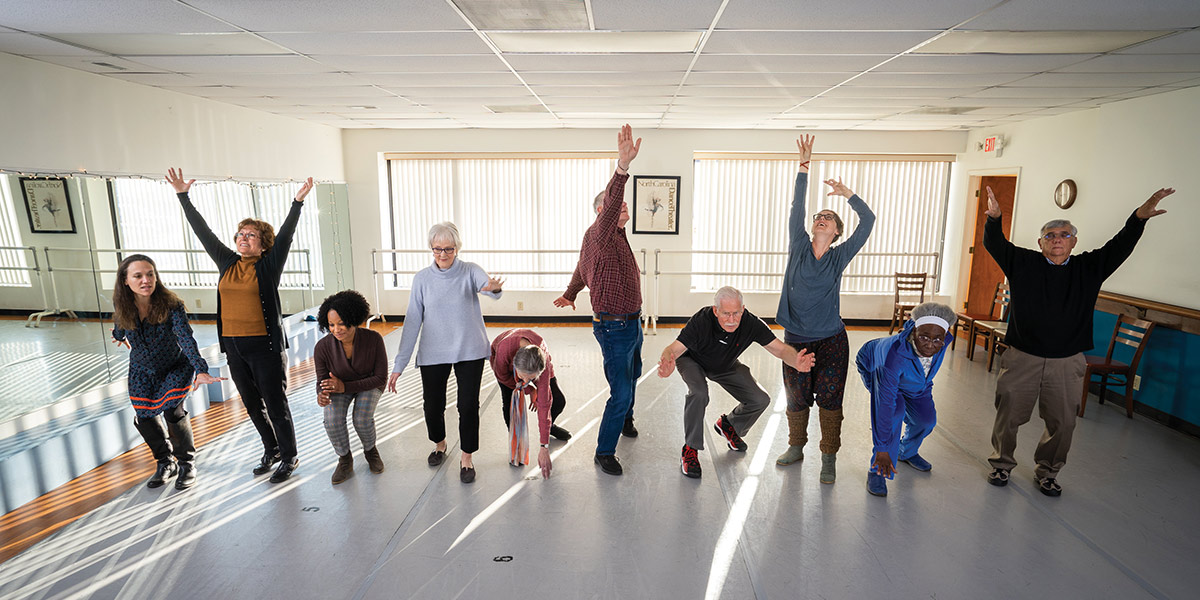The health benefits of dance have been getting a lot of press lately. A New York Times piece called dance the ‘kale’ of exercise for aging, and with good reason – a 2003 study showed that dance was the only leisure-time physical activity associated with lower risk for dementia, and subsequent small trials suggest that dance improves the health of connections between brain cells and increase neurotrophic factors, which act like vitamins for the brain.

Winston-Salem has its own NIH-funded clinical trial about the effects of dance that is entering its last year of recruitment, and for the first time, will have a site in Greensboro this fall. Instead of focusing on healthy older adults, the IMOVE study examines how dance affects the brains and bodies of older adults experiencing early stages of memory loss. Many people are unaware that memory loss is often accompanied by changes in walking and balance. Published studies show that people with memory loss are more likely to fall than others their same age who do not have memory loss, and falls are one of the main reasons people with memory loss have to visit the emergency room. Memory loss can also be linked with decreased social engagement. Dance might be a way to help with both movement and social engagement at the same time.
People who are interested in contributing to scientific knowledge about memory loss and the effects of the arts by participating in this nationally unique trial can call 336-713-MOVE to learn more.

